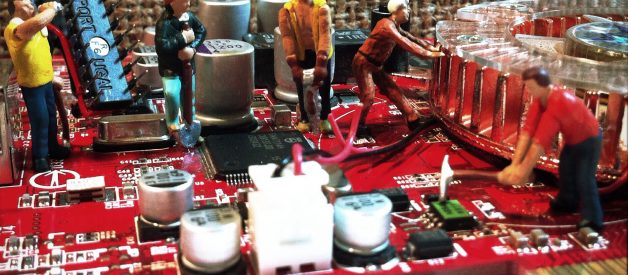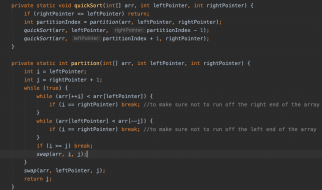Cryptocurrency and gaming are two industries that, at a glance, seem to bear little relation to one another. However, cryptominers and gamers have been forced into a somewhat ambivalent relationship due to shared demand for a certain piece of hardware: the GPU. The 2017/18 crypto boom led directly to a shortage of graphics cards which drove up prices and rendered PC gaming even more expensive.
Once the crypto craze cooled down, an influx of cheap second-hand GPUs flooded the market from miners who wanted to recuperate some of their investment. Despite the newfound surplus of GPUs, gamers were still wary about the hand they?d been dealt. Speculation abounded that GPUs used to mine were practically worthless since the hardware had surely degraded during lengthy mining sessions.
We aim to dispel some of the rumors that surround how mining affects a graphics card, and explore how old notions of mechanical hardware failure have mischaracterized our perception of electronic degradation. So if you?re worried about how cryptocurrency mining will affect your GPU, prepare to be relieved.
Whether you?re thinking about getting into cryptocurrency for yourself, or in the market for a cheap former mining card, we?ve got good news for you. Despite rumors to the contrary, cryptomining does not degrade your GPU anymore than high-performance gaming would? which is to say, not much at all.
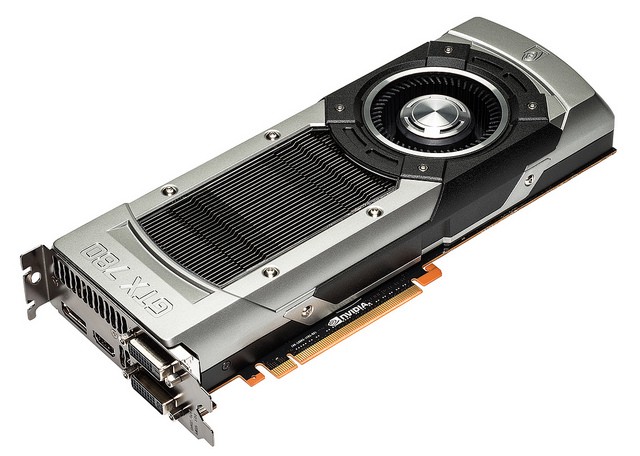 An NVIDIA_GeForce_GTX_780?3qtr by GBPublic_PR
An NVIDIA_GeForce_GTX_780?3qtr by GBPublic_PR
Even consumer grade graphics cards are built to handle hefty computational loads, and for a variety of applications aside from modern gaming titles, like:
- Accelerated Video
- SETI@Home
- 3D Modeling
Cryptocurrency mining is just one in a long line of non-gaming industries seeking to ply the native talents of graphics cards for their benefit. GPUs are excellent at performing parallelized computations- which makes them useful not only for rendering the particle effects in Far Cry: New Dawn, but also for solving cryptographic equations and hunting for extraterrestrial intelligence.
The major factor in how cryptomining may degrade your hardware is not in how mining uses your GPU, but rather in how long you leave your card mining. And even then, leaving your GPU to mine 24/7 for several years is still unlikely to affect the card?s actual performance.
If you don?t believe us, check out UFD Tech?s video where they test two GPUs ? one that?s been used to game off and on for two years, and another that?s been mining for two years straight. Spoiler, they find little to no difference between the two when benchmarked.
The reason for this is fairly simple, and cuts to the heart of our misapprehensions about why electronic components fail. Mechanical hardware has a set expiration date, directly correlated to its usage. Common mechanical components include:
- Older hard drives
- Keyboards
- Cooling fans
Sooner or later, these parts will either need repair or replacement to avoid decreased performance and total failure. For example, you?ll only get a certain amount of revolutions on your fans until the actual physical material begins to wear down and affect performance. It?s just good ol? fashioned friction and physics.
In fact, since GPUs have mechanical fans attached to them, this is one of the few ways cryptocurrency mining will possibly impact your card. Since mining keeps GPUs running for longer periods of time, the fans will wear out much faster. Luckily, fans are one of the easiest parts to replace in a gaming PC- just check out this tutorial to see what we mean.
When managed properly, prolonged activity doesn?t negatively impact your GPU?s integrity. Electronic components, lacking the friction and wear of their mechanical counterparts, rely much more heavily on effective heat management to prevent failure. So long as your system properly cools those electronics, they should be able to stay in working order for years.
How To Avoid Overheating Your GPU While Playing Games Or Mining
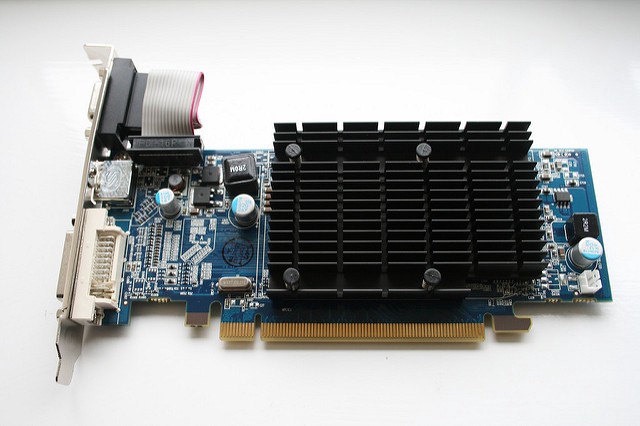 Sapphire ATI Radeon HD 4550 GPU by William Hook
Sapphire ATI Radeon HD 4550 GPU by William Hook
Before we outline some basic preventative measures, we?d like to say that most consumer grade GPUs are surprisingly resilient, and can handle high temperatures for extended time periods. However, the old adage rings true; it?s better safe than sorry, especially with a shiny new graphics card that cost you a considerable chunk of change.
The most common causes of overheating in gaming PCs are:
- Poor cleaning
- Mismanaged overclocking
- Insufficient airflow/cooling
It can be hard to tell if your PC is overheating just by looking at it. Some of the physical signs, like a burnt electrical smell, only indicate that it?s already too late. Familiarize yourself with the early warnings and make sure you have a program to check your hardware?s internal temperatures with, such as:
- HWMonitor
- Rainmeter
- Real Temp
Regularly checking one of these programs can help you identify cooling problems long before they lead to actual overheating. Add a regular cleaning schedule to this and stay away from insane overclock speeds, and you?ll be right as rain (especially apt if you use actual water to cool your gaming rig).
All of this holds true for whether you?re mining or playing a graphically intense game. In fact, the game will generally subject your card to higher temperatures than mining. The only special cooling concern you should have when mining, is to make sure your GPU fans are functioning properly. If one or both fail, then this could cause the GPU to overheat.
You can build redundancies into your cooling system, but this is pretty much overkill. GPU fans can last for years, even with near constant use. Checking up on them from time to time and perhaps keeping a spare around is more than enough to keep you in the clear. Furthermore, if something does fail in your GPU, fans or otherwise, the factory drivers are the last line of defense. They automatically throttle performance to prevent overheating and more lasting damage.
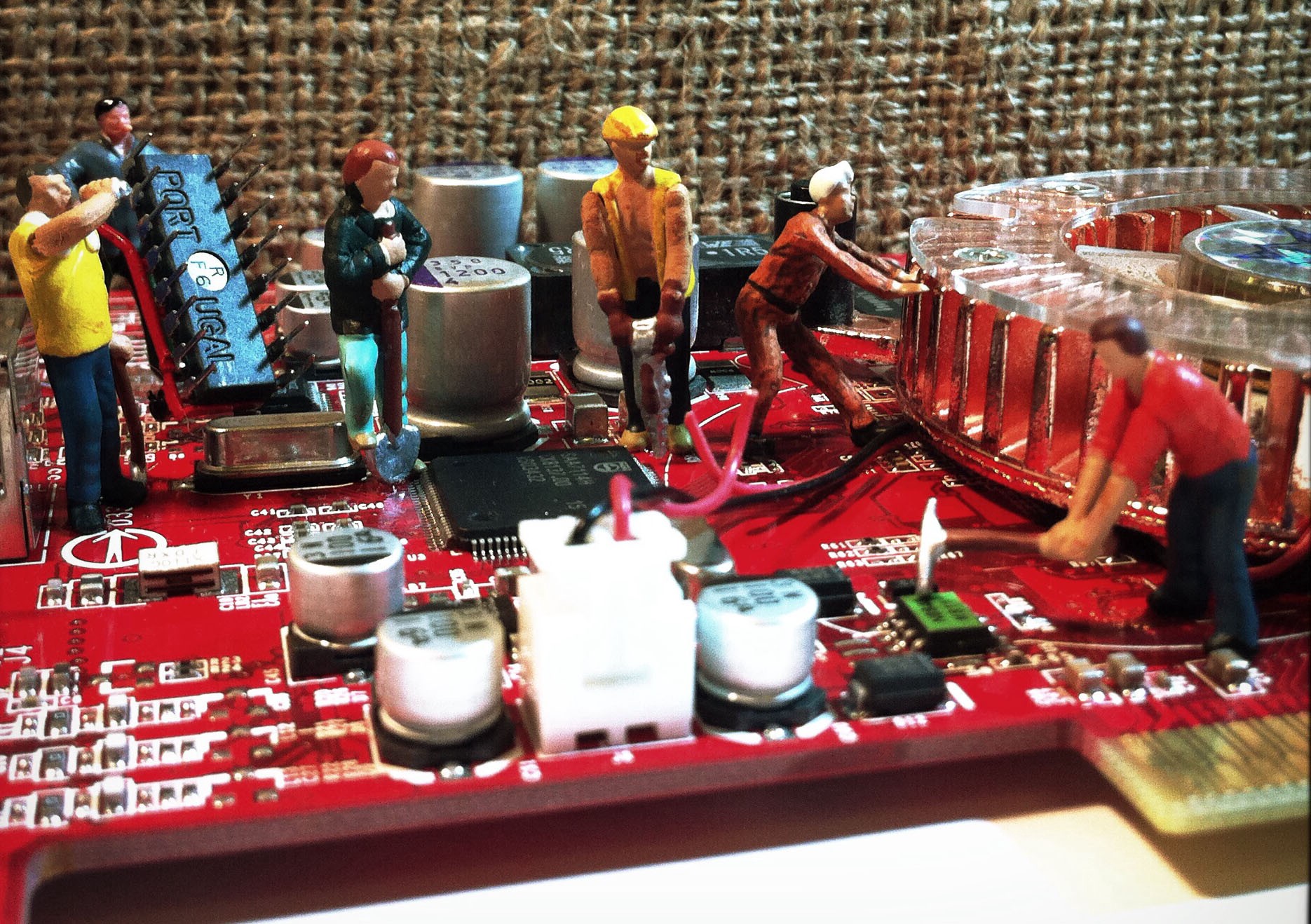 The upgrade team working on a GPU by Ray Skinner
The upgrade team working on a GPU by Ray Skinner
So long as you mine responsibly ? you really don?t have to worry about overheating. Your GPU is one heckuva machine, and it?s far more likely you?ll want to upgrade to a more powerful, efficient unit long before the end of its lifespan. Just take the proper precautions, avoid unnecessary overclocking, keep your PC clean, and you should be able to mine away to your heart?s content.
By Jared Carpenter
